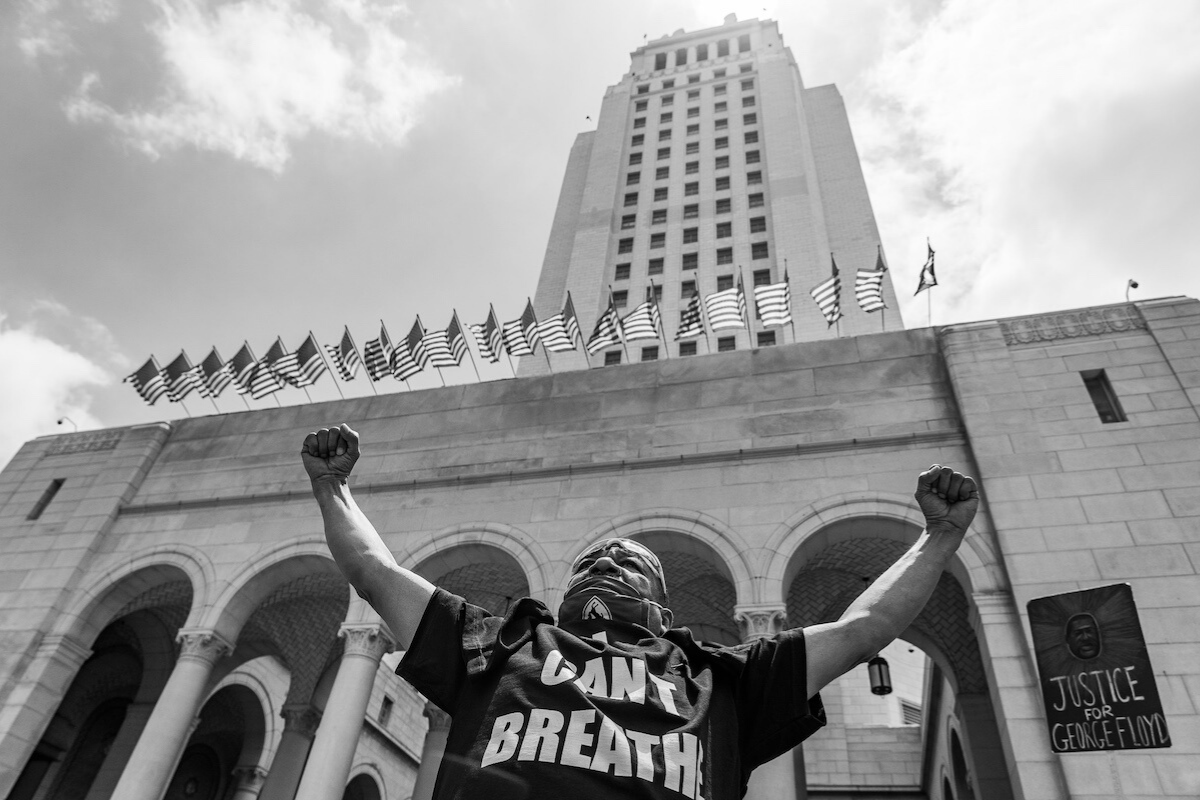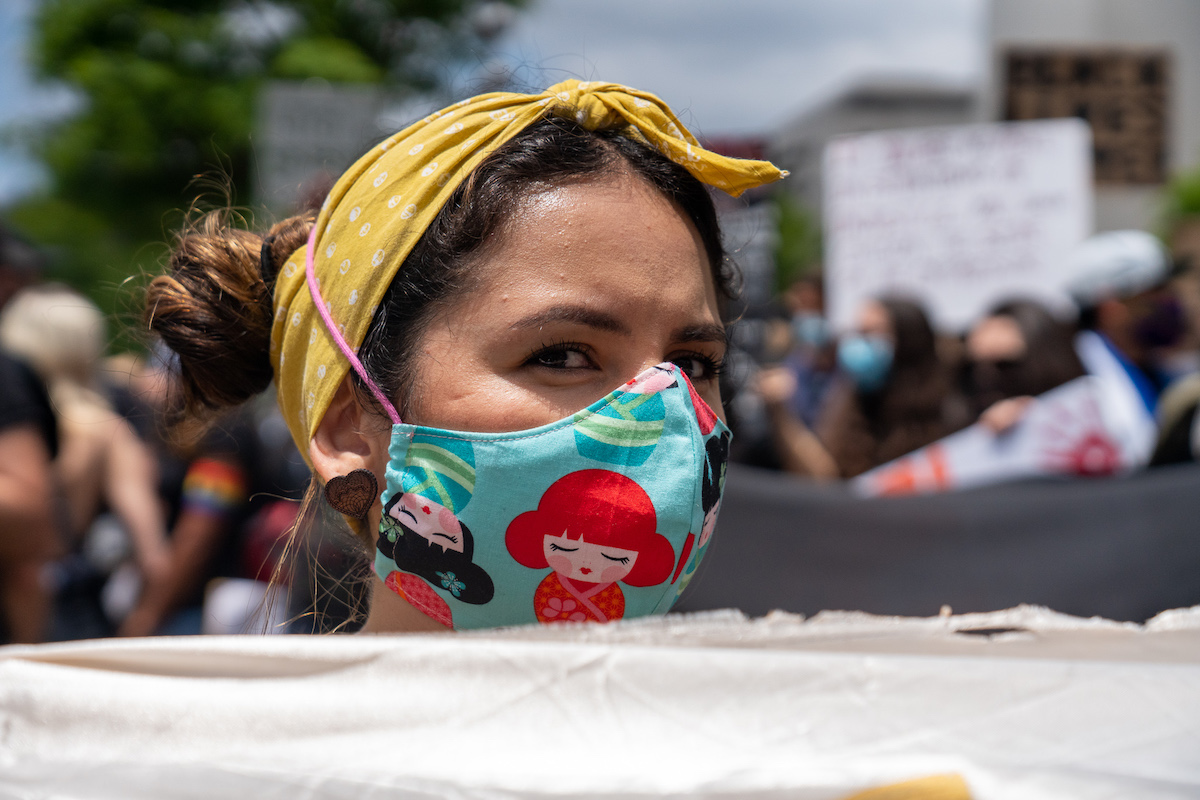

A Latino man yells “No puedo respirar, mamá” at the steps of L.A’s City Hall on Saturday June 6, 2020. (Photo by Francisco Lozano/Latino Rebels)
Like most Americans of conscience, I am profoundly disgusted with the blatant displays of racist violence from the police. Nevertheless, I am also affirmed by the historic and widespread emergence of peaceful anti-racist protests throughout our nation and the world. Thankfully, in this age of ubiquitous videotaping, it is no longer possible for police to secretly assassinate unarmed Black people with impunity in their homes or in the streets of our towns and cities. However, I recognize with painful shame that after all these centuries the powerful in America still have to be reminded that Black Lives Matter.
Yet, it is very discouraging as a woke Latinx to observe the tidal wave of commentary about race and racism on TV and social media and feel somewhat left out of the discussion. We have long been ignored, overlooked and made invisible during these vital debates simply because race and racism in America has been seen mostly in Black and White terms.
This dichotomy is reflected in multiple arenas of our culture, be it in TV commentary, in feature and documentary films, in best-selling books, and even in the teaching of American history in schools.
One recent example is a recent article in Woman’s Day magazine on June 5 offering “15 Kid-Friendly Movies to Help Build a Conversation About Race and Racism.” Every single one of these worthy films focused exclusively on the Black experience.
Another recent example was a PBS Special on June 12 focusing on New Voices of Generation Z, wherein about a dozen young people, White, Asian and mostly Black, were featured speaking in clear and articulate language. Frankly, I was very impressed and felt hopeful listening to them. However, it did not occur to the producers of this program to include any Latinx voices, despite the fact that there are Gen Z Latinx leaders active in a variety of struggles, most notably in defending the rights of student DREAMers.


One of the many young Latinas who protested on June 6, 2020 in Los Angeles, California (Photo by Francisco Lozano/Latino Rebels)
As a nation, we will not find effective ways of addressing issues of race if we continue viewing it predominantly, or simply, in Black and White. It is clear that Latinx people share with Blacks the multiple burdens of poverty and discrimination affecting every aspect of their lives, but for us there is an added struggle for land, legacy, and language to a much greater extent than for Blacks.
Whereas Blacks suffered the incomparable devastation of slavery and Jim Crow over generations, Latinx people in this nation were differently impacted by the dispossession of our land and property, the suppression of our culture and language, and the erasure of our contributions to the known and celebrated history of America. Beyond that, the Latinx community has long tackled issues of citizenship, immigration and national identity, which thankfully, do not concern most American Blacks.
We have to arrive at the recognition that though sharing common obstacles, each community of color has their own history and agenda vis a vis the White power structure. Our nation has to mature in its understanding of race to go beyond a bipolar Black and White view to adopt a more inclusive and accurate multipolar perspective that includes all people of color.
Some of this understanding includes the recognition that the Latinx community is the largest and most diverse pan-ethnic group in our nation. We are not only multigenerational, but among ourselves we are also multiracial, multilingual, multicultural and multinational to a much greater extent than any other people of color in our nation. We are a massive blending of European, African and Native American ancestors, which for centuries until this day, has generated racism and color prejudice within our own communities and nations of origin, as any Indigenous or Afro-Latinx person could attest.
In conclusion, as Americans we must recognize the more complex and nuanced aspects of racism in our nation before we can begin to effectively address them. This is not to minimize or delay our response to the realities of Black oppression in America. But as we advocate for Black Lives Matter, let us be mindful of all the other people of color who have benefited from —but also supported— the Black struggle for dignity and human rights.
***
Dr. Julio Noboa Polanco is a writer and retired Social Studies Professor. He served for six years as Assistant Professor at the University of Texas at El Paso. His research interests focused on multiculturalism, curriculum studies and critical pedagogy. He is living now in Santa Ana, Costa Rica. Contact him at jnoboa@earthlink.net.


